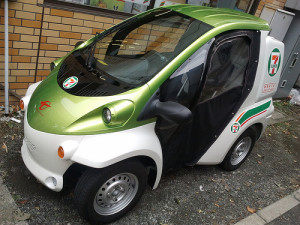 Hybrid cars are on everyone’s minds. Twenty, forty, or fifty dollars for a full tank of gas? Who in their right might mind wants to pay that? Frustrated, the gas customers sigh. But applauded for the small amount of gas they need to operate, hybrid cars are being pulled off the lots of car dealerships each and everyday.
Hybrid cars are on everyone’s minds. Twenty, forty, or fifty dollars for a full tank of gas? Who in their right might mind wants to pay that? Frustrated, the gas customers sigh. But applauded for the small amount of gas they need to operate, hybrid cars are being pulled off the lots of car dealerships each and everyday.
But what about a plug-n hybrid? Most consumers have heard that these cars are great too. Then, a person might ask him or herself, what exactly is a plug-hybrid? How do they work, and what’s the difference between a plug-in hybrid and a regular hybrid anyway?
Plug-in hybrids are able to run solely on batteries, but they use fuel also
These types of hybrid cars have some of the same characteristics of hybrid vehicles. They are also are very similar to electric vehicles. Plug-in hybrid cars must be recharged externally by connecting a plug to a power source. The combustion engine in plug-in hybrid vehicles is used only as a back up. These cars can run only on batteries if desired. However, it is expected that these types of hybrid cars be plugged in daily.
Hybrid cars travel just as many miles as a conventional car
Designed to go the extra mile where gas-mileage is concerned, hybrids can be driven on the highway, in cities, or wherever else a person needs to drive. On the other hand, plug-in hybrids are designed to handle commuter-type distances, meaning about twenty to sixty miles between destinations. This way, the plug-in hybrid does not have to use its back up combustion engine, but plug-in hybrids can go further using gas.
Hybrids help to minimize pollution, but they still pollute the air
When compared to plug-in hybrids, hybrid cars have a long ways to go where pollution is concerned. Since plug-in hybrid cars can run solely on their battery power, they don’t have to emit fuel. That means that plug-in hybrids don’t have to pollute the air.
Plug-in hybrids fight against greenhouse gases
Plug-in hybrids use virtually no imported oil. Board studies have shown that electric hybrids emit at least 67% lower greenhouse gases when compared to gasoline cars. Since the products used to power plug-in hybrids are renewable, the difference in greenhouse gases may be even greater than the study determined.
And there you have it. That’s the difference between plug-in hybrids and regular hybrid cars. It makes a big difference, but you would be surprised how little that matters at the current moment. And that’s only because plug-hybrids are not being sold to consumers at this time. But this list should get you excited about the wonderful plug-in hybrid car, coming soon to a dealer ship near you.
And it’s going to be a great debut. People already really like regular hybrid cars, but they haven’t seen anything until they see plug-in hybrid cars. But for now, maybe they should just be satisfied with what they have. Because who knows? Before plug-in hybrid cars come out, something even better might be introduced on the market.
